If you came from China or have been watching Chinese social news, you'd probably heard a word or two about “相亲角” (marriage market), and those words are likely to be negative. That’s understandable considering how bad marriage market’s reputation has been since last April, when skincare brand SK-II came out with the viral “marriage market takeover” video in support of “leftover women” in China (the brilliant campaign had attracted wide media attention both domestically and from abroad). Public criticism of marriage market reached a new height earlier this month, thanks to an article on “the price-list inside Chinese marriage market”, which exposed the many geographical and economical hierarchies of today's spouse-hunting game between Chinese parents.
Having hit upon enough discussions about marriage market on our social media feeds, the Elephant team (that's us, Biyi and Yan) decided to visit Zhongshan Park on a Sunday afternoon, which, according to the internet, is currently the biggest, oldest marriage market of Beijing. We had so much curiosity, yet also a lot of anxiety (and even fear!) before going in; after our two-hour experience inside the market however, we left with a much more nuanced view about not only the match-matching mechanism itself, but more fundamentally, the Chinese parents who still believe and follow this system in seeking love for their children.

All these traditional common sayings, the things that today's young Chinese no longer buy or even know much about, granted historical legitimacy to the parents who had come to, or are still coming to the marriage market for their kids.
Sunday 23rd, 2 pm.
After meeting each other and paying the 3 rmb entry tickets for the park, me and Yan headed in with equal amount of excitement and doubt: so far, everything we've heard about the marriage market is from strangers online; what if the market no longer exists? Actually, what if it had never existed? Maybe from the beginning, it’s just a fish-story made up by medias, after all, why would such a place exist?
But it does exist, and we found it towards the deep end of the park, where, across oily-green trees and stone sculptures, a long stretch of footpath was covered with people moving around. This must be it! Unable to withhold our excitement, me and Yan quickly ran towards the market.
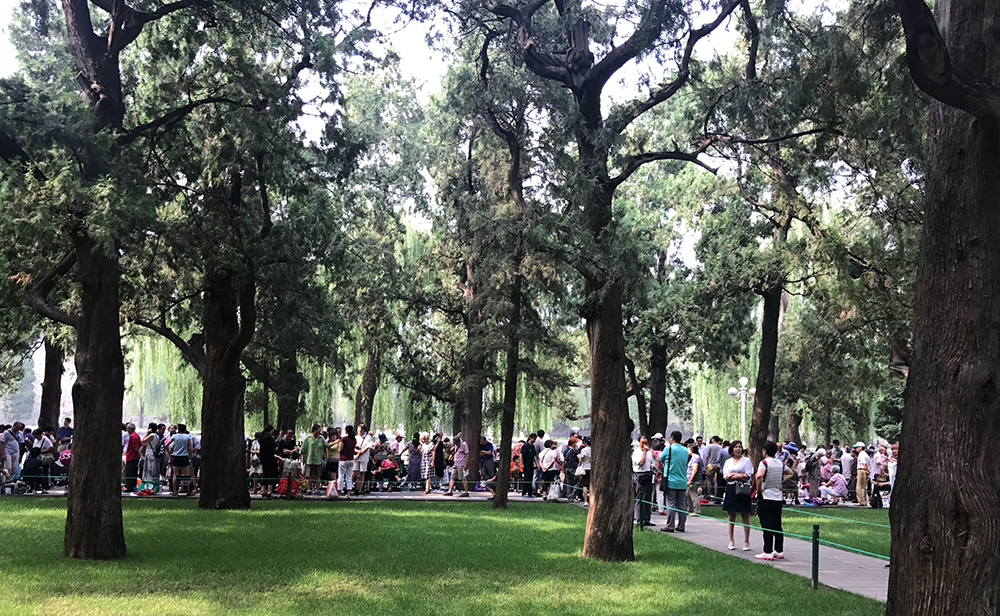
“You! You! Why are you taking photos? Show me what you just took!” An angry female voice abrupt my immersed excitement. She grabbed my phone away and - before I had a moment to react - started to check into my photo album. The woman seemed to be in at least her 60s, wearing slouchy, patterned polyester shirt, with nude nylon tights firmly pressed against her chubby ankle. “Don’t you know picture is banned in our market? Delete what you just took!” Flustered and Awkward, I deleted the pictures and walked away in a hurry. “These damn people, coming here just to mess around!” I could hear her loud complaints as she sank back to her wooden portable chair.
Damn it, this wasn’t a good start. Holding tight to my just-publicly-ashamed iPhone, my palm was getting all sweaty and my face burning. I should have been more cautious, at least to do some research about the rules and norms here…my thoughts drifted away as I walked deeper into the market, crossing stacks of A4-sized posters that are packed with details advertising single sons and daughters:
“Beijing female born in 1981. 165cm, accountant of nation-owned company.”
“Never married girl, born in 1989, master degree, working in local middle-school, decent income. Slim and pretty, loves arts. Looking for kind and responsible guy born after 1980 who’s over 1.75cm. Beijing residency and with-house preferred.”
“Single, Beijing residency, engineer of national real-estate company. Annual income over 30,0000 rmb, owns apartment and car. Looking for female around 170cm/55kg who's kind, smart and healthy.”
………
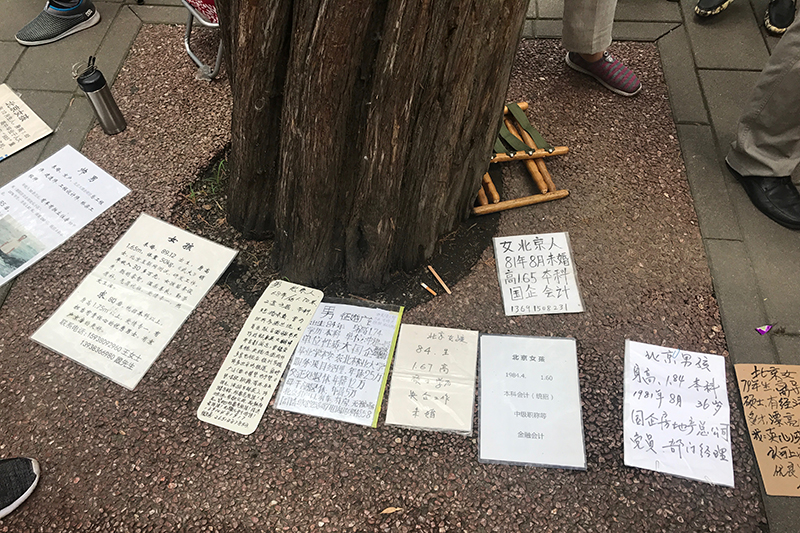
Browsing through the posters, I was soon lost in an ocean of information. Why do all these ads look the same? If the parents want their kids to stand out from the few hundred competitors in this market, should they at least put in some effort to decorate the posters? Make them colorful! Spray on some sprinkles! Hang up some photos!
But no one did, or perhaps to ever do such things here, for that the ultimate principle of marriage market is conformism but not individualistic celebration. The parents who made the decisions to come here - on this hot Sunday afternoon, bringing along their little portable chairs and water bottles and pre-printed A4 posters to advertise their children in a humiliating and ineffective gesture as many would consider from the outside - are desperate, helpless, yet they also share the fundamental faith in something so stubborn and intrinsic to the system. That “something” pins from a range of traditional Chinese cultural norms such as “a child is supposed to obey the parents’ order and follow the advice of matchmaker (父母之命 媒妁之言)” to “men and women of age should be married (男大当婚 女大当嫁)”, then to more material-related guidelines represented by the idea of “properly/equivalent matched (门当户对)”. All these traditional common sayings, the things that today's young Chinese no longer buy or even know much about, granted historical legitimacy to the parents who had come to, or are still coming to the marriage market for their kids.
-
Every single one of them would start with the same question: “which year were you born? ”
“Hi girl, which year were you born?” A man padded on my shoulder and asked. I dashed out for a second before figuring out what he was implying, “1992,” I answered. “Ah, that’s a bit too young…” he sighed with pity, “are you from Beijing? What’s your job? Would you consider a guy 10 years older than you like my son?” I studied him for a moment before digesting all the questions: a man certainly older than my dad, looking sweaty, tired, yet his eyes were filled with sparkles of hope. I just couldn’t lie to a guy like this (before coming, me and Yan joked that we’d play the single-girls-looking-for-marriage look when we are here), “Sorry, I do have a boyfriend already.” For some reason, I really did feel I owed him an apology.

The man walked away after I turned him down, yet for the hour we spent inside the market, me and Yan were approached at least ten times by various moms and dads, either shouting to us from a distance or directly coming to our way, asking about our personal information. Every single one of them would start with the one same question: “which year were you born?” After hearing our answers, the majority would walk away (although we did see some post-90s being advertised in the market, it’s clear that they are not the “norm” yet), yet some would linger to throw out more questions or comments to our face, pointing out opinions such as “young ones like you two won’t be steadfast enough for marriage! (小姑娘对婚姻还不踏实) ” and “my son wouldn’t accept girls this young! (我家儿子接受不了)” (honestly, so?)
Hearing all these blunt (and rather rude) comments, I felt like a stupid, puckered onion being brutally poked from outside: for over two decades of my life, this is the first time ever that someone would come up and demand personal information from me for one simple and direct purpose: to hook me up with their single and marriage-ready (in the parents’ minds) sons. I felt awkward and offended, and to cover it all up, I bowed my head even deeper down to carefully study the endless A4 posters lying around. The findings?
1)There were significantly more daughters than sons being advertised.
2) The majority of these bachelors and bachelorettes were born in the 1970-1980s.
3) Almost all of them hold jobs “inside-the-system (体制内)”, such as teachers, doctors and employees of stated-owned enterprises.
4) Beijing residency (户口)and house ownership are indeed super important. A father we talked to even mentioned that he didn't put his son's poster on the ground because he believes, as a Beijing-native, “he has the right to pick others in the market instead of being picked.” Huh.
5) But other things like appearance (height and weight), hobbies, occupations and personalities are important too. In the end of the day, match-making is an all-rounded game of which both sides assess each other based on the average score across fields, to hunt down that “not-too-good-my-kid-can't-handle” and “not-too-bad-to-rip-my-kid-off”, equivalent (般配)other half.
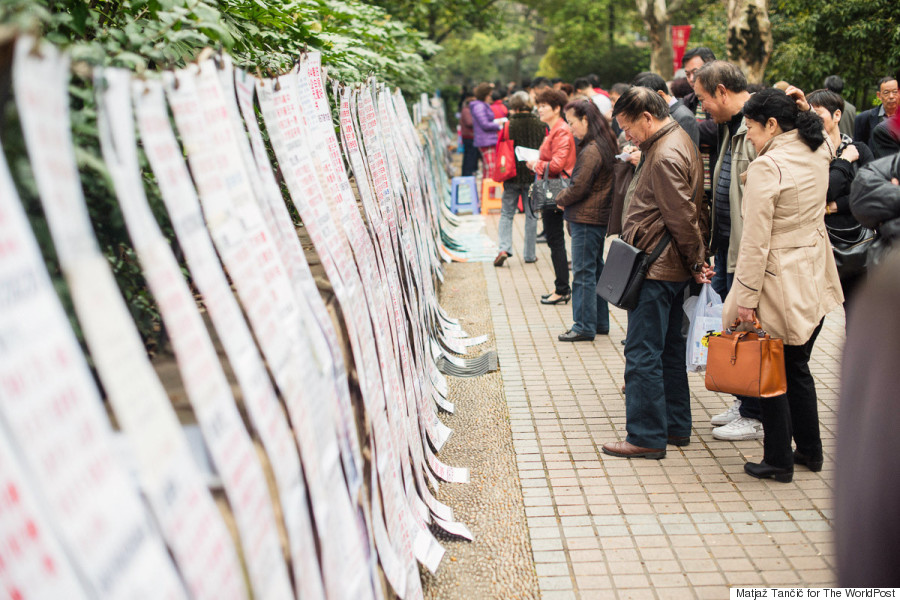
Marriage market in Shanghai's Renmin Park. (photo from Huffington Post)
-
For the outside world, the marriage market seems like a pathetically lone island. It’s a disconnected, outdated and closed system, functioning under a set of unchanging rules that were only legitimized and cherished by its own islanders.
The “which year were you born?” question was still flying in, but my guard was down as I eventually got used of repeating myself, “I am just a random visitor, not here to date, sorry!” Yan was stuck in a similar situation too, yet she seemed to be having more fun, exchanging conversations with parents about their kids, the reason for them to come to this particular market, and if so far they’d made any progress. We were the most curious about one question though: do the sons and daughters actually know their parents are here advertising for them?
As it turned out, this is the question that dreaded many of them into silence. “My son thinks marriage market is outdated,” said a woman with friendly, round eyes, “so I never told him I come here. If I managed to find a suitable girl in the market I would add the girl’s parent’s WeChat, ask them to send some photos, and show them to my son without telling him that I found her here. I’d just say she’s the daughter of a colleague or something, huh.” She blinked and walked away, continuing to chat with a group of mothers sitting together waving paper-fans. This indeed is the mechanism of the marriage market: no pictures, no flamboyant self-advertisement or desperate callout; if one parent spotted another one that matches their requirement, they’d talk individually, trading pictures and WeChat IDs with the consent to introduce the kids.
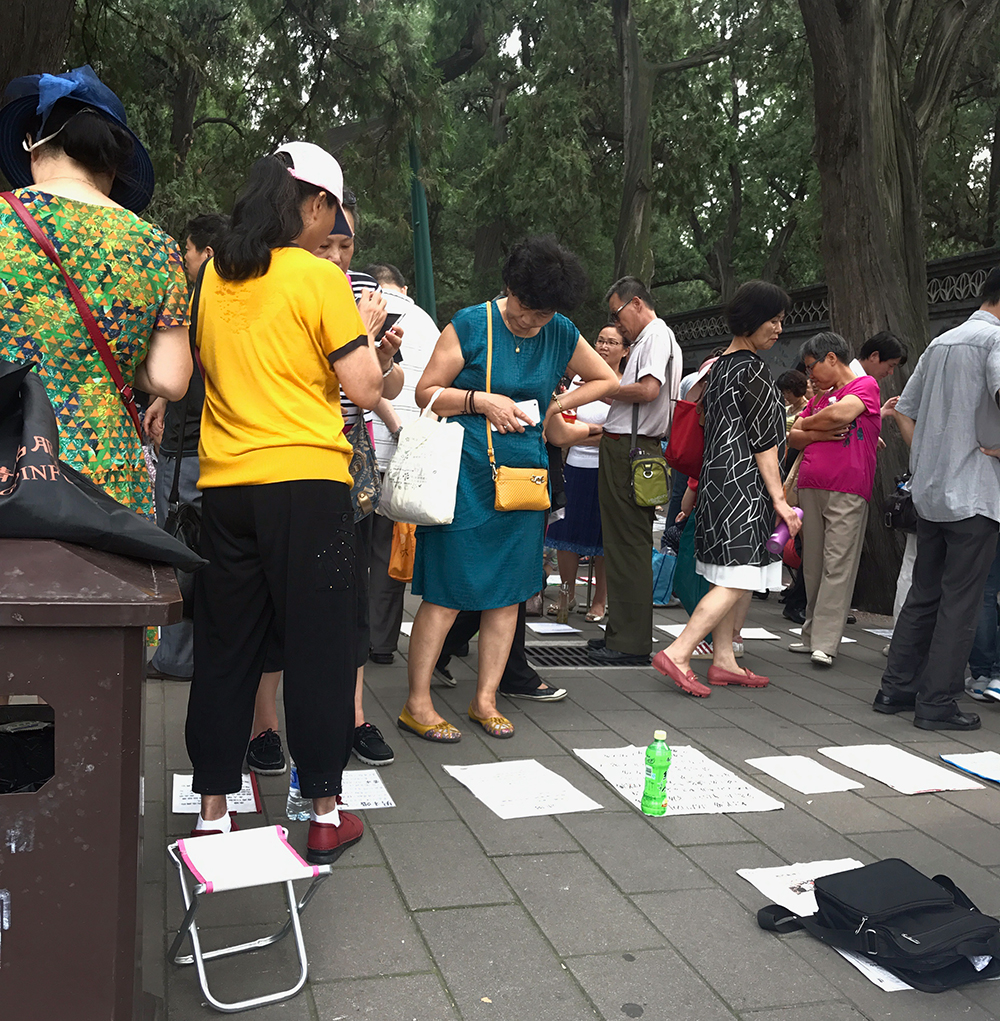
On the way out of the marriage market, I bumped into a beautiful young girl who, after a quick eye-contact, I instantly identified as another outsider of this place. Like the matchmaking parents would do with each other, we instantly started chatting:
“So what do you think?”
“Insane, the people here are insane! Some came to grasp me and asking all sorts of weird personal questions, I had to escape out like a clumsy idiot!” She was clearly still trembled by the experience.
I couldn’t be more emphatic to what she was talking about: for the outside world, the marriage market is like a pathetically lone island. It’s a disconnected, outdated and closed system, functioning under a set of unchanging rules only legitimized and cherished by its own citizens. Everything here self-justifies, everyone here knows their purpose; no room for outside interference, no need for “this-is-wrong-why-are-you-still-doing-this-for-your-grown-up-adult-kids”. Both the pretext and context are set, what you do is just to follow everyone else.
And that, as weird as it sounds, is also the paradoxical beauty of China's marriage market. When you are actually inside, with your sweat and emotions completely devoted into that situation, things actually make sense. These parents are the generation of Chinese that still believe in the broken belief-system; no matter how much “advanced” ideologies like individualism, personal rights and gender equality have swept by the society, they still couldn’t and wouldn’t let go of the narrative that they deemed the most fit for their kids. Call them absurd, redundant or old, yet in the end, they are just like every generation of us in the society - the product of social, cultural and political constructions of our own times, unconscious, insecure, yet full of timeless self-pride.
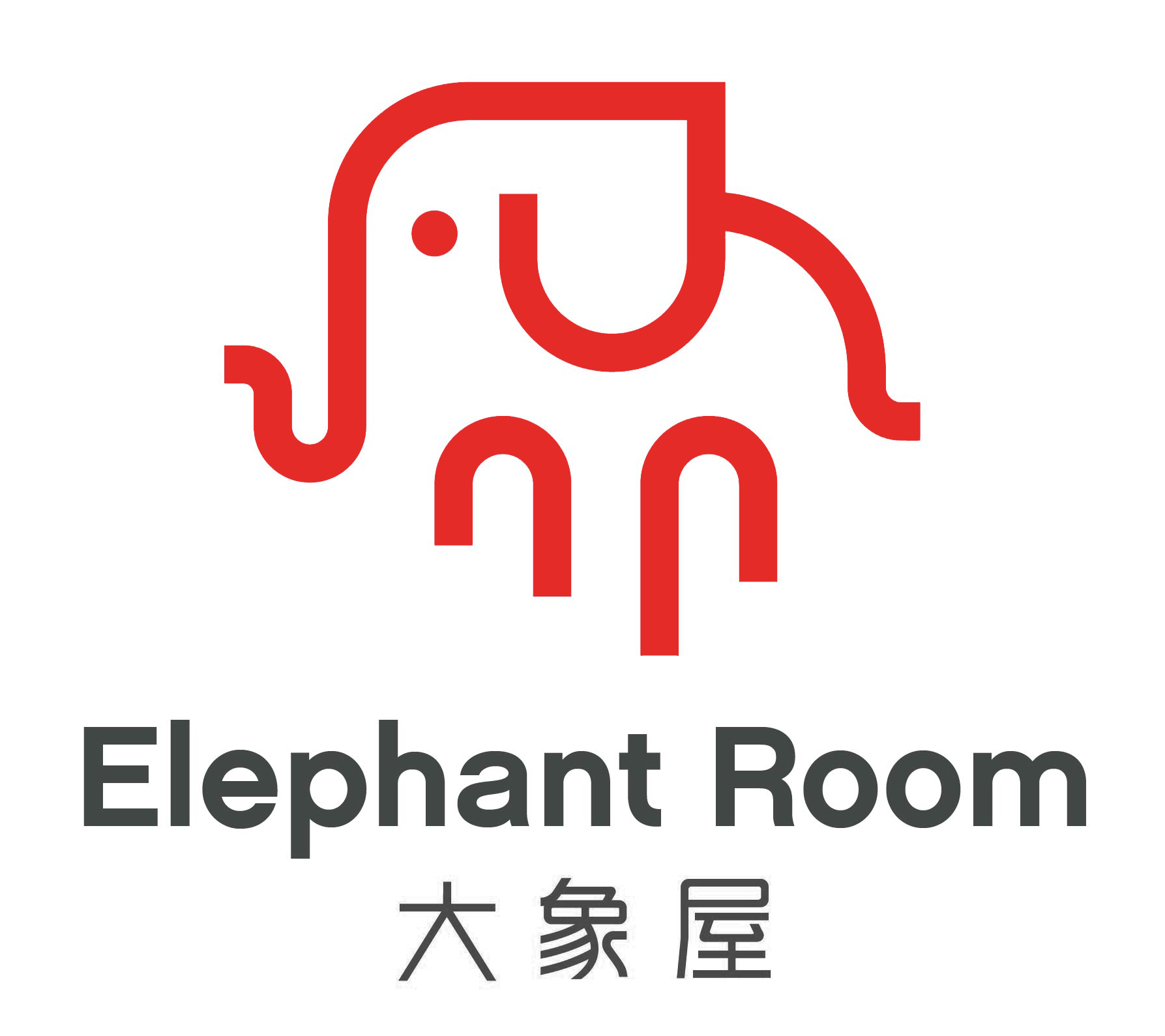
Interesting yet very odd, primitive and backward. Parents are well meaning and want the best for their children. Yet spouse ‘hunting’ for them will always yield a missive. Natural attraction occurs when two people meet and parents cannot substitute the attributes they ‘think’ may be suitable for their kids to make for ‘sustainable’ partner.
They asked for your age to find out your Chinese Zodiac sign. I’m a dragon year, so apparently many decide my blessings are due to this. According to astrology, I don’t do well with some “lower” status years because I’m so stately. Apparently my husband is a bad match, but well, that’s just the zodiac.
I live in China. Many of the “young”people tell me they are too busy with careers to date and are glad for their parent’s help. A lot find their spouse through their parents. It is an interesting idea.
People tend to make bad choices for themselves, especially when under the influence of love. But at least the bad choice is your own bad choice, and not your parents’.
I recently saw the same kind of ‘market’ within the park around the Temple of Heaven… I’m a male westerner, and was with a Chinese female friend, so no-one asked either of us any questions, but I found it very disturbing to see that these (often) ladies would be advertising their children in that way… It did seem like a market, with buyers and sellers.